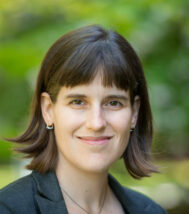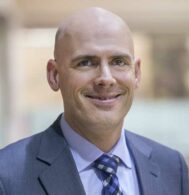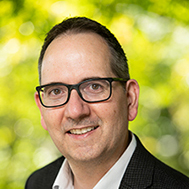Overview
Are you interested in furthering your skills in engineering teaching? The Institute for Engineering Teaching (IET) will help build your confidence in teaching – and your network!
The IET is an interactive teaching workshop designed for current and aspiring engineering instructors. The IET is an initiative of the Canadian Engineering Education Association (CEEA-ACÉG) and is specifically tailored to engineering educators. If you want to build or enhance foundational teaching skills, engage in teaching-related professional development, and connect with other engineering educators, the IET is for you!
The 2023 IET will be remotely delivered over two half days in February. We will provide perspectives, tools, and tips to improve course design and teaching effectiveness in engineering. The IET is delivered using the same interactive, effective, and evidence-based methods you will learn about Specifically, the IET covers multiple aspects of course design and delivery through the lens of constructive alignment: participants will explore high-level course design, meaningful learning outcomes, engaging learning activities, and effective assessments, all set in an engineering context and using engineering examples. Developed and delivered by a team of award-winning engineering educators from across Canada, the IET includes plenty of opportunity for input and advice on any course design and delivery questions, as well as networking with other engineering educators from across the country. Participants will get access to all the online materials and resources used during the IET.
- Dates & Times: 12:00-4:00 PM EST on Thursday, February 23 and Friday, February 24 (attending both days is required)
- Format: interactive and participatory online workshop via Zoom
- Registration: https://ceea.wildapricot.org/event-5125428
- Cost: IET cost is as follows:
- $100 for CEEA-ACÉG professional members
- $200 for non-members
- $25 for student/post-doctoral fellows CEEA-ACÉG members (a CEEA-ACÉG student membership is required but can be added for $25)
Participants will receive a digital certificate upon completion of the IET.
Registration
Please register here: https://ceea.wildapricot.org/event-5125428
IET cost is as follows:
- $100 for CEEA-ACÉG professional members
- $200 for non-members (see below)
- $25 for student/post-doctoral fellows CEEA-ACÉG members (see below)
Notes for students, post-doctoral fellows, and non-members:
- Students and post-doctoral fellows first need to become members of CEEA-ACÉG. Cost for student membership is $25.
- Professionals (faculty, staff, industry representatives, and other non-students) who are not currently CEEA-ACÉG members receive a $100 discount on their IET registration if they add a professional membership ($130 for one year).
If you have any difficulty registering or if you have any questions, including to register someone else, please email Pete Ostafichuk.
Zoom links and access to the online resources that go with the IET will be emailed directly to registrants.
Schedule
The IET runs over two half-days. Attendance for both days is required!
The schedule appears below (arrangement of topics subject to change):
- Day 1: Thursday, February 23, 12:00-16:00 EST (start time: 9:00 PST, 10:00 MST, 11:00 CST, 13:00 AST, 13:30 NL)
- Constructive alignment
- The learning mind
- Learning outcomes
- Introduction to learning activities
- Introduction to assessments
- Day 2: Friday, February 24, 12:00-16:00 EST (start time: 9:00 PST, 10:00 MST, 11:00 CST, 13:00 AST, 13:30 NL)
- Impactful learning activities
- Effective assessments
- Consolidation and wrap-up
Speakers

Agnes d'Entremont
Associate Professor of Teaching
University of British Columbia
Agnes d’Entremont is new to the IET! She teaches courses from second year to graduate level, which have ranged from technical skills to engineering science to engineering design to research skills. She has also worked with content and students that are less typical for engineering faculty: she led the design of a course about engineering for Arts and Commerce students, and has co-created an equity, diversity, and inclusion (EDI) curriculum which focuses on applications in engineering. She has a focus on active learning, flipped classroom approaches and open pedagogy, as well as EDI and student wellbeing in engineering. She is a recipient of the Killam Teaching Prize, the ASEE Mechanical Engineering Division Outstanding New Educator award, and the ASEE Women in Engineering Division Mara H. Wasburn Early Engineering Educator award, as well as several open education awards.

Brian Frank
Professor and the DuPont Canada Chair in Engineering Education Research and Development
Queen's University
Brian Frank is the DuPont Canada Chair in Engineering Education Research and Development in the Faculty of Engineering and Applied Science, and a Professor in the Department of Electrical and Computer Engineering at Queen’s University. He is a co-founder and a past president of the Canadian Engineering Education Association, and Coordinator of the EGAD Project, to develop national resources and training for outcomes assessment in engineering education. He has received the Queen’s Chancellor A. Charles Baillie Teaching Award and Engineering Society’s Golden Pillar award. He has taught courses a broad range of courses, and his teaching interests include project-based courses and competency-based assessment.

Peter Ostafichuk
Professor of Teaching and Chair of First Year Engineering
University of British Columbia
The current CEEA-ACEG President, Peter Ostafichuk is also one of the co-creators of the first Institute for Engineering Teaching (IET) in 2017, and he has been involved with the development and delivery of the IET every year since. “Dr. Pete” (as he is known to his students and colleagues) is a professor of teaching at the University of British Columbia, where he has taught all class sizes (14 to over 1000), at all year levels (first year to graduate), and across many subject areas (including design, technical, lab, and professional practice) for the past twenty years. He led the development of the multi-award-winning Mech 2 Program, and he is a 3M Teaching Fellow, a recipient of the Wighton Fellowship, and winner of the Engineers and Geoscientists BC Teaching Award of Excellence. He has worked extensively with innovative assessment techniques, Team-Based Learning, and flipped classroom approaches.
